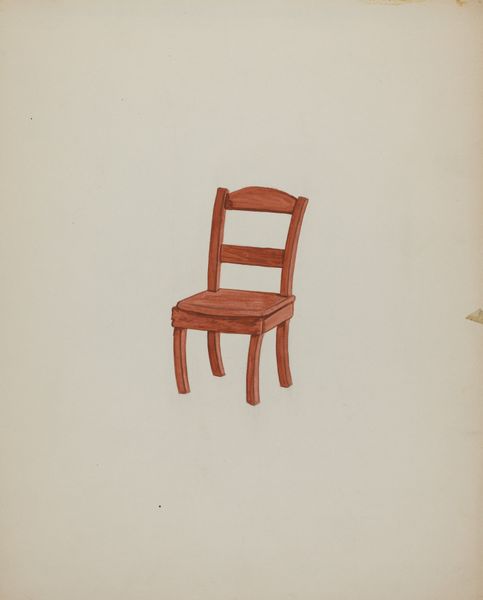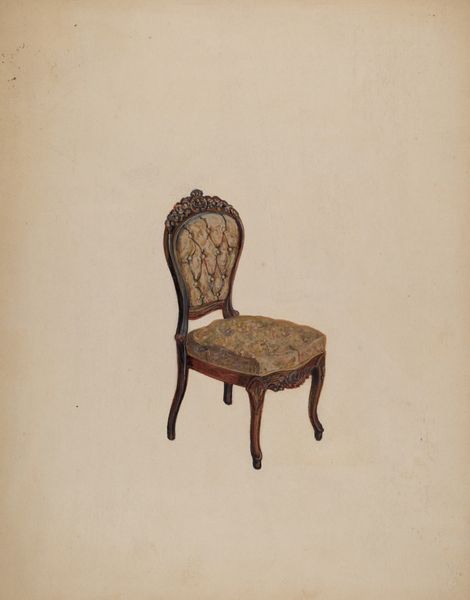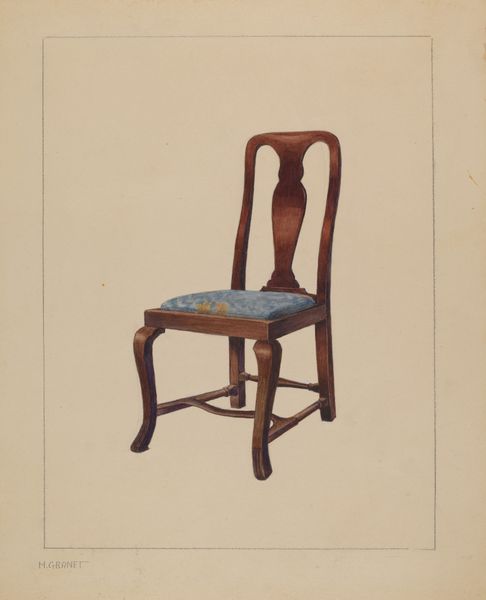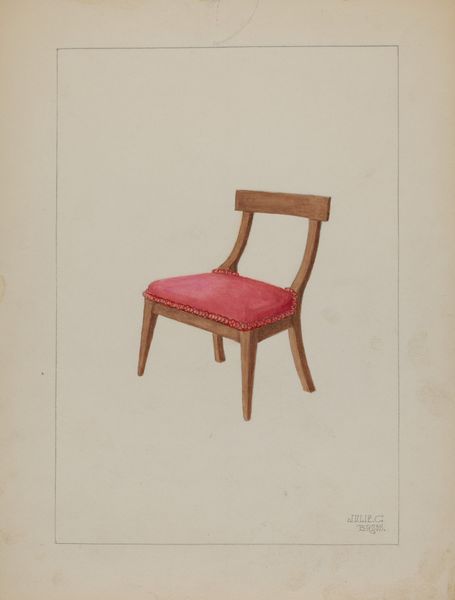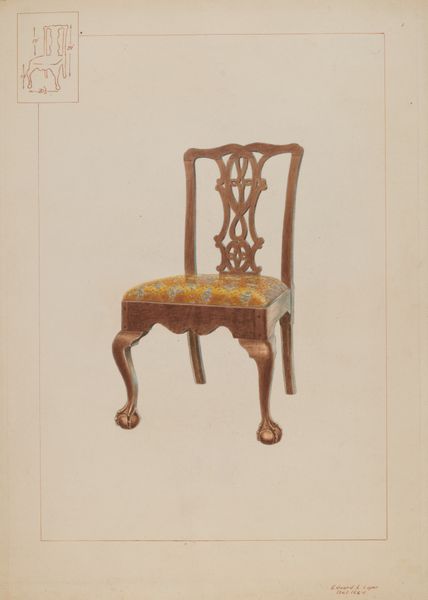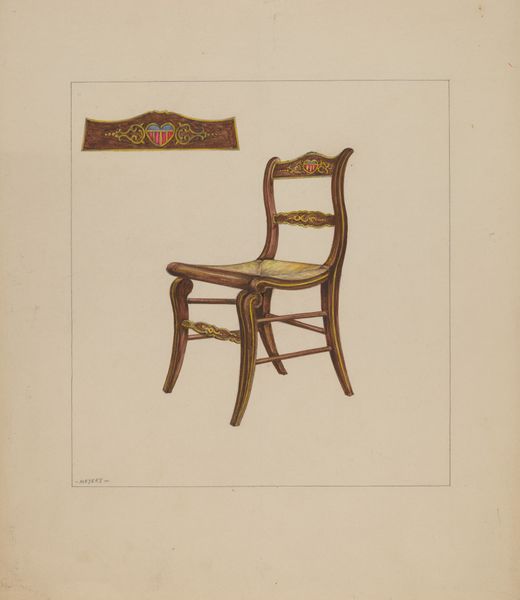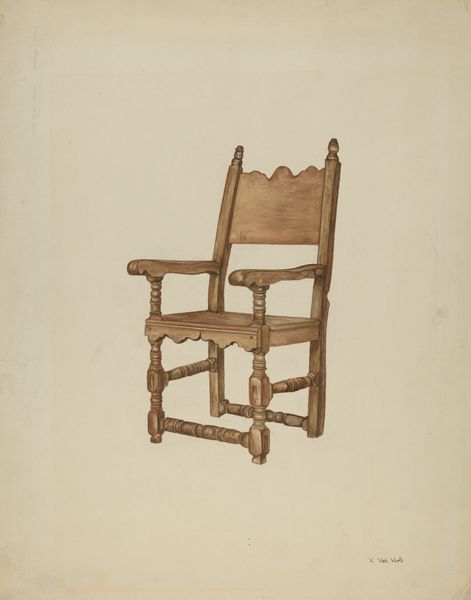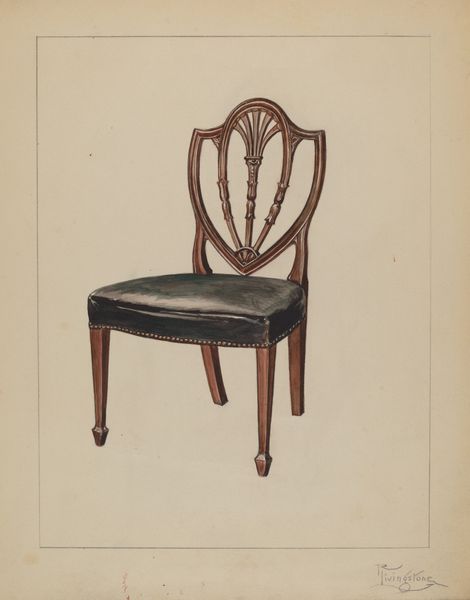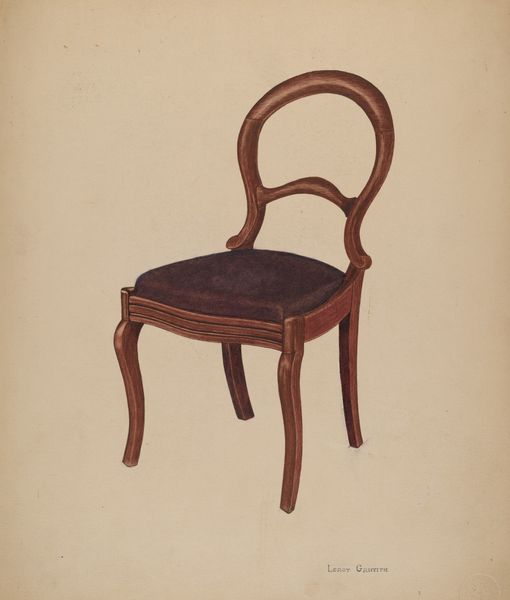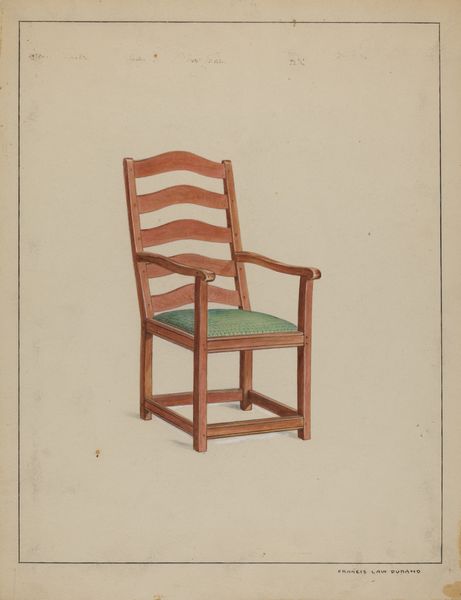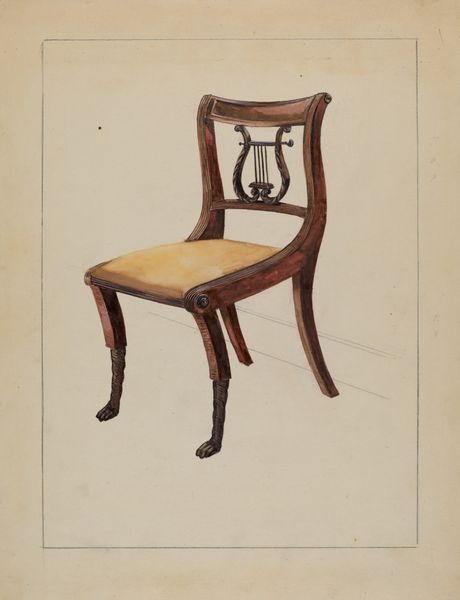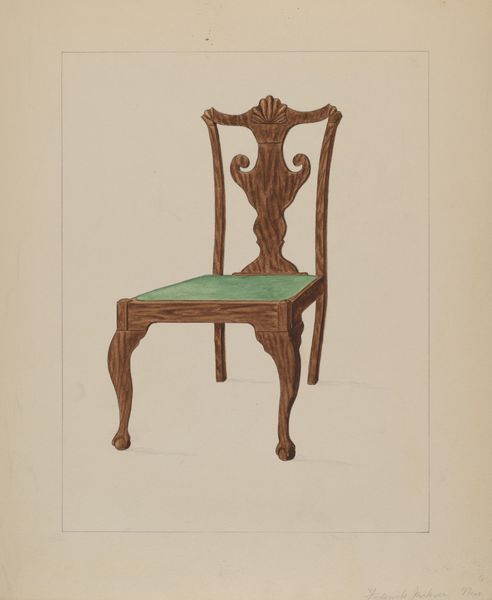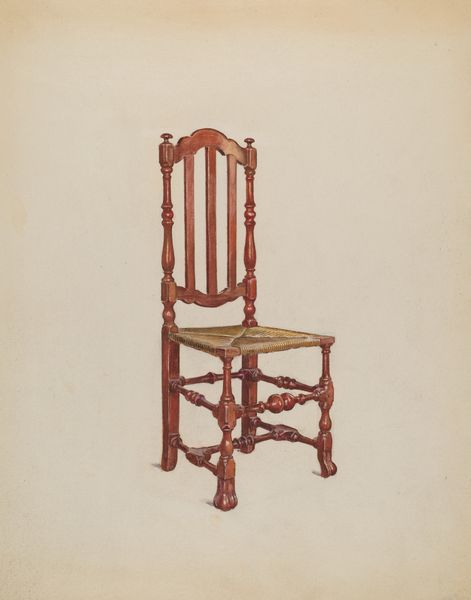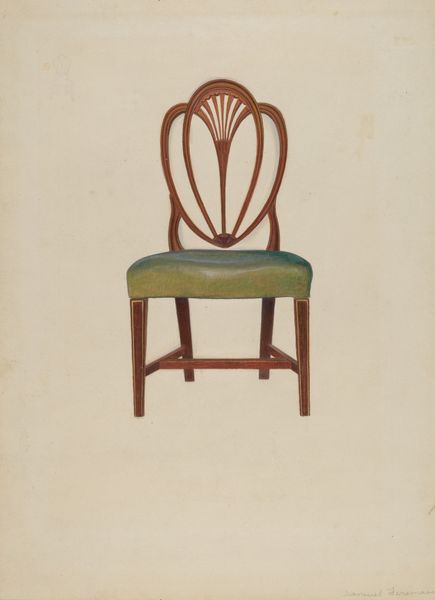
drawing, watercolor
#
drawing
#
water colours
#
watercolor
#
folk-art
Dimensions: overall: 29.2 x 22.9 cm (11 1/2 x 9 in.)
Copyright: National Gallery of Art: CC0 1.0
Editor: Here we have Mildred Ford's "Toy Chair," created around 1939 using watercolor. There's something so simple and straightforward about it... almost a little lonely. What strikes you when you look at this piece? Curator: Well, considering its creation around 1939, on the cusp of World War II, I can't help but see the isolation of childhood being mirrored in a broader social context. There's a sense of fragility, not just in the depicted object but perhaps hinting at the vulnerability of that era. What kind of chair do you think this represents? Editor: I imagine it's a child's chair – a folk art representation of one, anyway. Does the folksy style relate back to this feeling of vulnerability? Curator: Absolutely. Folk art, particularly during times of upheaval, often serves as a connection to simpler, more stable times, reflecting collective memories. Ford might be speaking to a desire to hold onto innocence. The scale, or lack thereof, also shrinks its social power, don't you think? How does that play into your idea of vulnerability? Editor: I guess I hadn't considered the lack of scale as a tool. That really puts the art into a deeper context, one I wasn't able to articulate at first. Curator: Exactly! The beauty lies in unraveling those historical threads and connecting them to our own understanding. This unassuming chair opens a dialogue about childhood, memory, and social change, don't you think? Editor: Definitely. I see it now - it's much more than just a picture of a little chair! Thanks so much!
Comments
No comments
Be the first to comment and join the conversation on the ultimate creative platform.
